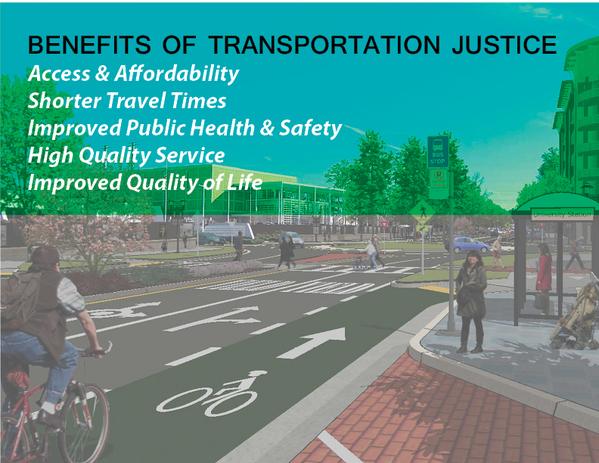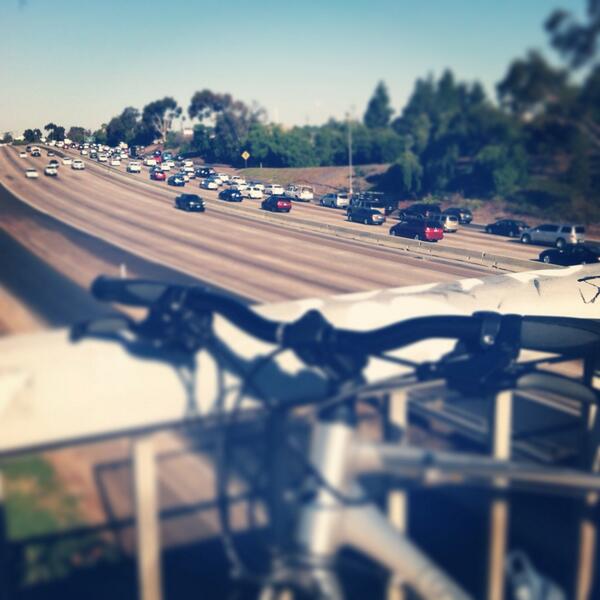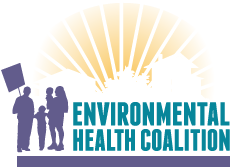
When I speak about transportation justice to SANDAG, I keep hearing the same buzz phrase: “balanced approach”. SANDAG claims the transportation plan for our region is a “balanced approach” because some funding is going to public transit, bicycling and walking improvements.
I think we have different opinions on what it means to be “balanced”.
Let’s imagine there are two children. Let’s say I give one child two pieces of chocolate and I give the other child twenty. The child who gets two may say, “Hey, that’s not fair,” and he may be right.
To remedy the situation, I give them both twenty more.
Does that make it balanced? Does that make it equal?
No. The children still began at a place of imbalance. If I continue to give them both the same amount of chocolates, one will still have more chocolate than the other because they didn’t begin at the same place. They were imbalanced from the start.
This example isn’t so different from the transportation conversation I’m having at SANDAG.
Where do we see imbalance?
1. Neighborhoods
Just like the chocolates, when one community begins from a place of very little transportation access, poor sidewalks, dangerous bike paths, poor air quality, and more (two chocolates) and another community has plenty of transit access, wide sidewalks, paved bike paths and toxic-free air, (twenty chocolates), investing the same amount in both communities who are severely imbalanced from the start doesn’t make it balanced. Ignoring the glaring deficit of one community in comparison to another is unjust and, as the child with two chocolates may say, unfair.
2. Funding
For the past few decades, freeways have received significantly more funding than infrastructure that supports public transit, bike paths and sidewalks. We know this to be true because it is difficult, sometimes impossible, to get to certain places without a car.
3. Travel Time
When it comes to competitive travel times between modes of transportation the imbalance is obvious. In San Diego, the average commute time by car is typically 25 minutes while it can be up to two or three times longer on public transit.
4. Public Health
As a result of freeways running through or near their neighborhoods, certain communities experience elevated cases of asthma, cancer and heart disease. SANDAG may say, “But we are investing in strategies to relieve the air pollution in these communities, such as expanding freeways for carpool lanes and for transit.” But this is not a solution to toxic air pollution because we know freeway expansion only worsens air quality and the effects of climate change.
5. Safety
Sadly, residents in low-income San Diego neighborhoods are ten times more likely to be hit by a car. Walk around San Diego’s underserved communities and see the broken or nonexistent sidewalks, lack of cross walks and public transit stops or pedestrian-friendly infrastructure for yourself. You don’t have to be a city planner to know that certain neighborhoods have considerably “less candy”, so to speak.

Transportation justice means true balance.
When EHC talks about transportation justice, we’re talking about the need for true balance and we are disappointed that SANDAG proposes a plan that only perpetuates a legacy of imbalance.
If SANDAG really wants a balanced transportation plan for the region, they will:
- Build efficient transit, bike and walk infrastructure
- Prioritize transit, bike and walk projects first before freeway expansion
- Make taking transit not an inconvenient form of travel
- Apply innovative transportation solutions that improve the air quality in low-income communities
- Fund transit, bike and walk infrastructure first in overburdened communities that have been neglected for too long
We can have a balanced transportation plan in our region, but it will require a new approach to what the term balance means and recognition of communities that have been behind from the start. If one child has two candies and one child has 20, why not give the first child 18 more and implement the values of equity and justice?
Thank you for supporting transportation justice.

To get involved, please This email address is being protected from spambots. You need JavaScript enabled to view it. today.
Monique Lopez, policy advocate

